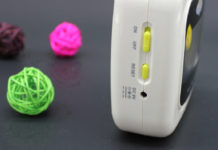The health of the babies is important to parents. It is quite obvious how they are protective of their children and always consider the health of the baby a priority. Sometimes, a parent’s nightmare appears during sleep as well. It happens when babies have difficulty of breathing during sleep.
When breathing stops for a few moments, your body does not allow air to pass through and cannot deliver oxygen and nutrients needed by every part of the body.
It is hard for an adult to manage when breathing stops in the middle of the sleep. Imagine when the baby is having the difficulty breathing.
Newborn apnea is a disorder when breathing is interrupted during sleep. It is a serious condition and potentially dangerous.
You do not want to wake up in the middle of the night checking if the baby is still breathing.
It is important to have your baby diagnosed as early as possible from the time of detection. This may lessen the risks of complications. There are tests to diagnose newborn apnea.
- The moment the baby is born, the doctor does physical exams and various tests by monitoring his breathing and heart rate, X-ray and measuring the amount of oxygen in the blood.
- One is called polysomnogram. Polysomnogram is a test which monitors from snoring and gasping of the baby’s breathing, oxygen levels of the blood, counts of breathing, eye movements, to the brain waves.
- Another approach to diagnose newborn apnea is by placing the baby on a home cardio respiratory monitor. It records the chest movements of the baby and it uses EKG to measure heart activity.
Parents should remember that early detection of newborn apnea is vital. Newborn apnea poses long term complications to babies and should be taken into consideration. It is life threatening.
Treatment for newborn apnea is essential as its early detection. Treatment depends on its severity of the newborn apnea though. Some simple cases can temporarily be treated through a machine called CPAP or continuous positive airway pressure in approach to a newborn apnea.
It keeps the airway open by allowing air to blow to the nose via the mask while the baby is sleeping. The doctor may use a monitor to track down the breathing and the heart rate of the baby and may give medication to stimulate the nervous system in correcting air exchanges.
Parents should take note that newborn apnea usually occurs in premature babies or babies that are born with congenital defects. Other treatments such as surgeries are also effective, but pose risks at the same time.
Before surgery is done, careful consideration of its risks, benefits, and alternatives should be understood. Some potential risks of surgery includes: pain, infection, bleeding, scar tissue, change in voice, and swallowing problems.
If the newborn apnea was not diagnosed from the start and was only detected later, parents should take the baby to the doctor immediately for proper diagnosis and evaluation so the right treatment can be applied and prevent complications.















